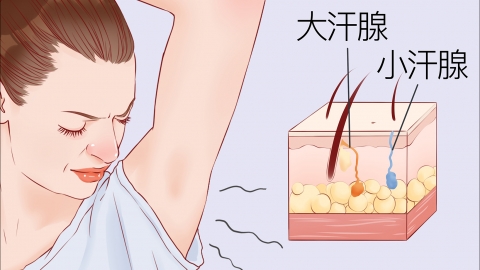At what age can one detect inherited body odor (bromhidrosis)?
Generally, inherited body odor (bromhidrosis) becomes noticeable around puberty, typically between the ages of 11 to 16. During this period, apocrine glands gradually mature along with physical development, causing the odor to progressively emerge. For some children who develop earlier or later than average, the onset may occur slightly earlier or be delayed. If concerned, it is recommended to consult a healthcare professional in advance. Detailed explanation is as follows:

Before puberty, a child's apocrine glands have not fully developed. Even if they carry the genetic predisposition, they rarely secrete abnormal sweat, so noticeable body odor is uncommon, making it difficult to determine inheritance based on smell alone. After entering puberty, hormonal changes cause the apocrine glands to rapidly develop and begin secreting sweat containing specific components. The odor becomes increasingly apparent after bacterial breakdown, especially noticeable during physical activity or in hot, humid conditions. At this stage, it's possible to make a preliminary determination of inheritance.
Some children develop at different rates; those who mature early may detect mild odor as early as age 10-11, while those who develop later may not notice clear odor until age 16-17. If the inherited body odor is mild and proper hygiene is maintained, the smell may not be obvious unless after heavy sweating, thereby delaying detection. In such cases, long-term observation of odor changes is necessary.
During daily life, pay attention to underarm odor in adolescents, maintain cleanliness and dryness, and avoid excessive cleaning or using irritating products. If the odor significantly affects daily life, promptly take the child to a reputable medical facility for examination. After confirming the condition, develop an appropriate management plan and avoid unguided treatments.






